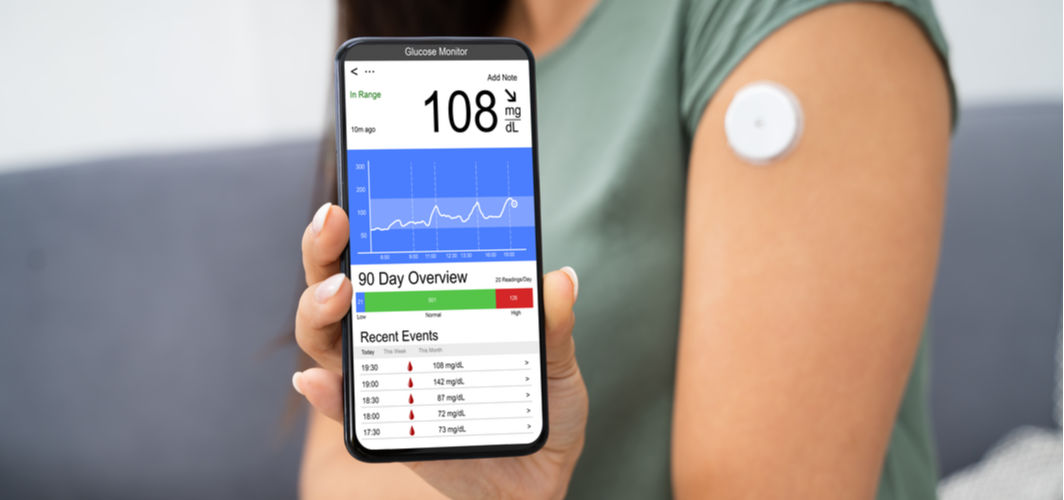Diabetes Management
Diabetes & Sleep Cycle: Is there a Connection?
2 min read
Published on - 20 September 2023
Share this article
0
0 like

Diabetes is a complex and chronic medical condition affecting millions worldwide. While it is primarily associated with elevated sugar levels and impacts various organs, it also disrupt your sleep cycle. In this blog, we’ll explore how diabetes can influence your sleep cycle.
How Does Diabetes Affect Your Sleep Cycle?
Diabetes can disrupt your sleep cycle in several ways. Fluctuating blood sugar levels and diabetes-related complications can lead to insomnia, frequent awakenings and an increased risk of sleep disorders, affecting the overall quality of your sleep.
- Fluctuating Blood Sugar Levels
Diabetes is characterised by the body's inability to regulate blood glucose effectively, resulting in either high blood sugar levels (hyperglycemia) or low blood sugar levels (hypoglycemia). Both of these extremes can disrupt your sleep.
While hyperglycemia can lead to increased thirst and frequent urination, hypoglycemia can result in night sweats or nightmares due to hunger and shakiness.
- Sleep Apnea
People with diabetes are at an elevated risk of developing sleep apnea, a sleep disorder characterised by pauses in breathing during sleep. Due to altered glucose metabolism and insulin resistance, sleep apnea can disrupt your sleep cycle by causing repeated awakenings.
- Neuropathy and Restless Leg Syndrome
Diabetes can cause neuropathy, a condition characterised by nerve damage, particularly in the legs and feet. This neuropathy can result in uncomfortable sensations, such as burning or tingling, which may intensify at night.
Conclusion
It is crucial for individuals with diabetes to recognize that the condition can profoundly impact their sleep cycle. Sleep disruptions related to diabetes can contribute to daytime fatigue, worsen diabetes-related complications, and affect overall well-being. Therefore, proactive management of diabetes is essential for better sleep., including regular monitoring of blood sugar levels, medication adherence, and a healthy lifestyle.
Diabetes Management
Consult Top Diabetologists
View AllLeave Comment
Recommended for you

Diabetes Management
Continuous Glucose Monitoring: How Does it Help?
CGM is a device that helps individuals with diabetes track their glucose levels continuously. A tiny sensor is inserted under the skin to measure glucose in the interstitial fluid. It helps individuals monitor glucose levels throughout the day and night, thereby allowing them to improve their HbA1c levels, reduce hypoglycemia events, and assess the impact of diet and exercise on glucose levels.

Diabetes Management
The Dangers of Diabetic Ketoacidosis
Diabetic ketoacidosis (DKA) is a life-threatening complication of diabetes characterized by high blood sugar, dehydration, and acidosis. It can lead to organ failure, coma, and even death if not treated promptly. Symptoms include excessive thirst, frequent urination, and fruity breath odour. Immediate medical attention is crucial to treat DKA and restore electrolyte balance.

Diabetes Management
How To Stay Energised During Dandiya Night?
To stay energised during Dandiya nights, it's essential to focus on hydration, comfortable clothing, and balanced nutrition. Hydrate well to maintain stamina, choose comfortable attire that allows free movement, and have a balanced meal before the event. Opt for light, energy-stabilising snacks during the night and take short breaks to prevent overheating. If you have diabetes, monitor your blood sugar levels, and ensure you have a light, balanced snack to replenish your energy as the night concludes.
Subscribe
Sign up for our free Health Library Daily Newsletter
Get doctor-approved health tips, news, and more.
Visual Stories

8 Fruits That are Incredibly Healthy for Diabetes
Tap to continue exploring
Recommended for you

Diabetes Management
Continuous Glucose Monitoring: How Does it Help?
CGM is a device that helps individuals with diabetes track their glucose levels continuously. A tiny sensor is inserted under the skin to measure glucose in the interstitial fluid. It helps individuals monitor glucose levels throughout the day and night, thereby allowing them to improve their HbA1c levels, reduce hypoglycemia events, and assess the impact of diet and exercise on glucose levels.

Diabetes Management
The Dangers of Diabetic Ketoacidosis
Diabetic ketoacidosis (DKA) is a life-threatening complication of diabetes characterized by high blood sugar, dehydration, and acidosis. It can lead to organ failure, coma, and even death if not treated promptly. Symptoms include excessive thirst, frequent urination, and fruity breath odour. Immediate medical attention is crucial to treat DKA and restore electrolyte balance.

Diabetes Management
How To Stay Energised During Dandiya Night?
To stay energised during Dandiya nights, it's essential to focus on hydration, comfortable clothing, and balanced nutrition. Hydrate well to maintain stamina, choose comfortable attire that allows free movement, and have a balanced meal before the event. Opt for light, energy-stabilising snacks during the night and take short breaks to prevent overheating. If you have diabetes, monitor your blood sugar levels, and ensure you have a light, balanced snack to replenish your energy as the night concludes.